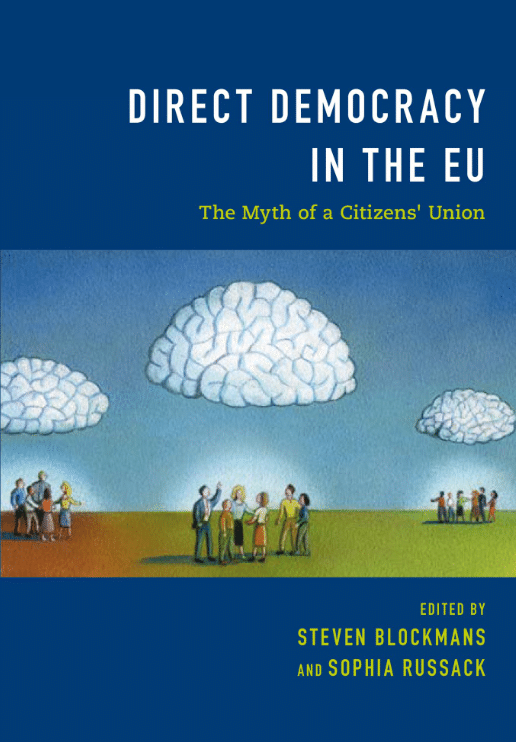Direct Democracy in the EU: The Myth of a Citizens’ Union is part of the ‘Towards a Citizens’ Union‘ project and is the product of collaboration with 20 renowned think tanks from the European Policy Institutes Network (EPIN) including the Austrian Society for European Politics (ÖGfE). It is the first of three publications that will also cover the state of representative democracy in the EU and the accountability of democratic institutions.
Direct Democracy in the EU: The Myth of a Citizens’ Union
The European Union has a democracy problem. The polycrisis that has plagued the EU for years has led to a cacophony of voices calling for fundamental change to the integration project. Yet despite the shock of the Brexit referendum and the electoral upsets caused by nativist parties across the continent, few of the plans for EU reform include concrete proposals to address the perennial democratic deficit.
This book looks at how the relationship between citizens, the state and EU institutions has changed in a multi-layered Union. As such, it focuses more on polity than on populism, and does not engage deeply with policy or output legitimacy. Building on the notion of increasing social, economic and political interdependence across borders, this book asks whether a sense of solidarity and European identity can be rescued from the bottom up by empowering citizens to ‘take back control’ of their Union, and offers insightful conclusions by Richard Youngs.
Each chapter starts with a short summary, and reader-friendly highlghts of the key messages appear throughout the book.
About the project
The ‘Towards a Citizens’ Union (2CU)’ project is concerned with the two-pronged question of i) how the relationship between citizen, state and EU has changed, and ii) whether and how direct democracy (volume 1, November 2018), representative democracy (volume 2, forthcoming in 2019) and the accountability of democratic institutions (volume 3, forthcoming in 2020) can be improved in a multi-layered EU. As such, 2CU uses the phenomenon of populism not so much to engage with policy, but as a research handle to assess process and polity. All three volumes will be published with Rowman & Littlefield International.
Building on the notion of increasing social, economic and political interdependence across borders, the first volume asks whether and, if so, how a sense of solidarity and European identity can be rescued from the bottom up by politically empowering citizens to ‘take back control’ of their EU. In the following two phases of the 2CU project we will conduct research into the state of representative democracy in Europe and the accountability of democratic institutions.
Regular project team meetings and public outreach events take place in Berlin, Brussels, Athens, Copenhagen and Warsaw throughout the whole project.
This project is co-funded by the European Commission under its Erasmus+ Jean Monnet programme.






